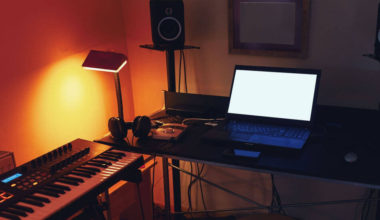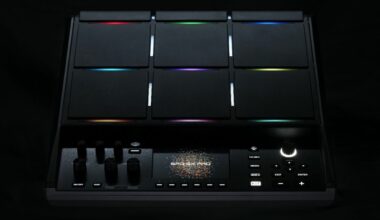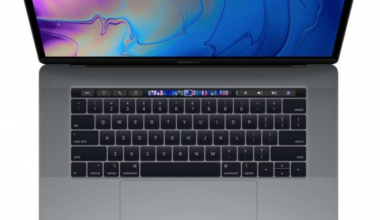
Imagine this: You’re nestled in a cozy cinema seat, the scent of buttery popcorn teasing your senses. As the lights dim, the screen flickers to life, and you’re instantly whisked away into a different realm. The characters spring into action, the plot thickens, and the music… oh, the music! It ebbs and flows with the narrative, punctuating poignant moments, amplifying the tension, and tugging at your emotions. It’s a harmonious blend of visuals and sound that crafts an immersive cinematic experience. Ever paused to ponder who’s the virtuoso behind this seamless symphony? Who’s the unseen maestro orchestrating this perfect harmony of visuals and music? That, dear reader, is the role of a music supervisor.
A music supervisor is the invisible conductor of a film’s musical score, choreographing the rhythm and melody that infuse life into the movie. They’re the unsung heroes of the film industry, laboring behind the scenes to conjure the magic we relish on the big screen.
But what exactly does a music supervisor do? How do they intertwine music into the narrative fabric, enhancing the storyline and resonating with the audience? Let’s delve into the role of a music supervisor and unravel the symphony of tasks they perform behind the silver screen.
The Role of a Music Supervisor: Orchestrating the Film’s Musical Symphony
Think of a music supervisor as the conductor of a film’s musical symphony. They’re not just picking out catchy tunes or chart-topping hits; their role is far more nuanced and intricate. They’re the ones ensuring that the music not only complements the visuals but also enhances the narrative and strikes a chord with the audience. But their role extends far beyond just selecting the right melodies.
The music supervisor’s journey begins with the script. They meticulously dissect the script, pinpointing scenes that require music and identifying moments where characters might be performing music on-screen. This could range from a character humming a tune in the shower to a grand concert scene. These on-camera performances need to be cleared before shooting, ensuring that the rights to use the music are secured.
In essence, the role of a music supervisor is akin to a musical detective, sifting through the script to find the perfect spots for musical intervention. They’re the ones who ensure that the music and the narrative dance in perfect harmony, creating a cinematic experience that’s music to our ears.
The Director’s Right Hand: Harmonizing with the Film’s Visionary
A music supervisor isn’t just a solitary figure, working in isolation. They’re an integral part of the film’s creative team, working in close collaboration with the director. Think of them as the director’s right hand, the trusted confidante who helps translate the director’s vision into a musical reality.
From the get-go, the music supervisor is involved in the creative process. They attend meetings, brainstorming sessions, and even rehearsals, bringing their unique perspective and expertise to the table. They’re not just passive participants; they’re active contributors, offering ideas, suggestions, and insights that can shape the film’s musical landscape.
One of their key responsibilities is to impress the director. This could involve creating sample playlists, presenting mood boards, or even composing original pieces. Once they’ve won the director’s approval, they’re involved from the shooting stage, often being on set if there are on-camera performances.
In essence, the music supervisor is the director’s musical muse, providing the soundtrack to the director’s vision. They’re the ones who ensure that the director’s creative vision is reflected in the music, creating a harmonious blend of sight and sound that enhances the cinematic experience.
The Art of Feedback: Hitting the Right Note in the Musical Score
A music supervisor isn’t just a curator of music; they’re also the guardians of quality. One of their key responsibilities is to ensure that the music is in sync with the visuals. This means making sure that the rhythm matches the pace of the scene, that the lyrics align with the mood, and that the overall musical score complements the narrative. If there’s a discordant note, it’s their job to spot it and correct it.
Imagine a scene where a character is lip-syncing to a song. If the lip movements don’t match the lyrics, or if the character is singing off-key, it’s the music supervisor’s job to step in and rectify it. They’re the ones who ensure that the music hits the right note, both literally and figuratively.
But their role isn’t just about correcting mistakes; it’s also about providing constructive feedback. They work closely with the director, the actors, and the rest of the creative team, offering insights and suggestions that can enhance the musical score. They’re the ones who ensure that the music not only sounds good but also feels right.
In essence, the art of feedback is a crucial aspect of the role of a music supervisor. They’re the ones who ensure that the music is in harmony with the visuals, creating a cinematic experience that resonates with the audience.
The Final Act: Orchestrating the Grand Finale
The role of a music supervisor doesn’t end when the director yells “cut!” for the last time. In fact, some of their most crucial work happens during the post-production phase. This is when all the individual elements of the film come together, and the music supervisor plays a key role in orchestrating this grand finale.
Once the movie is shot, the director gets a set period, usually around ten weeks, to create their director’s cut. During this time, the music supervisor is busy temping the movie. This involves adding temporary music tracks to the film, giving the studio and the rest of the team a sense of how the final product will look and sound.
Simultaneously, the music supervisor works closely with the film’s composer. They go through each score spot, discussing the mood, tone, and feel that the director wants. They listen to the composer’s demos, approve certain cues, and suggest changes as necessary. This collaboration ensures that the film’s score is in perfect harmony with its narrative and visuals.
The culmination of all this work is the final dub, where the final score and songs are added to the movie. This is the moment when the music supervisor’s efforts come to fruition, as the film’s musical landscape comes alive.
In conclusion, the final act of a music supervisor’s role is a complex process of collaboration, coordination, and creativity. They’re the ones who bring all the musical elements together, ensuring that the film’s soundtrack enhances the cinematic experience.
The Verdict: The Role of a Music Supervisor Strikes a Perfect Chord
So, what’s the final take on the role of a music supervisor? Is it all about picking out catchy tunes and chart-topping hits? Or is there more to this role than meets the ear? Well, as we’ve discovered, the role of a music supervisor is a complex symphony of tasks. They’re the maestros behind the screen, ensuring that the music enhances the narrative and resonates with the audience. They’re the conductors of the film’s musical score, the collaborators with the director, and the final arbiters of the film’s musical journey.
But let’s not forget, a music supervisor is also a musical detective, a quality guardian, and a feedback artist. They’re the ones who dissect the script, spot discordant notes, and provide constructive feedback. They’re the ones who ensure that the music not only sounds good but also feels right.
In conclusion, the role of a music supervisor is indeed music to our ears. They’re the unsung heroes of the film industry, working behind the scenes to create the magic we experience on the screen. So, the next time you find yourself swept away by the perfect harmony of visuals and music in a film, spare a thought for the music supervisor. They’re the ones who make the magic happen, one note at a time.





